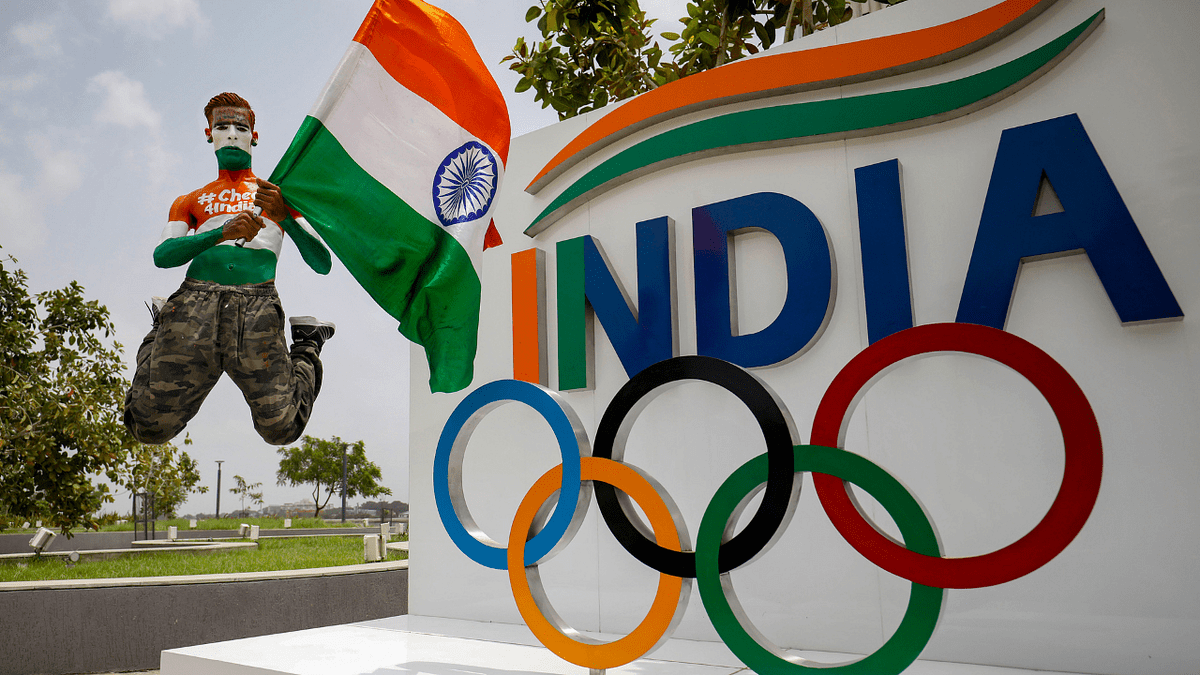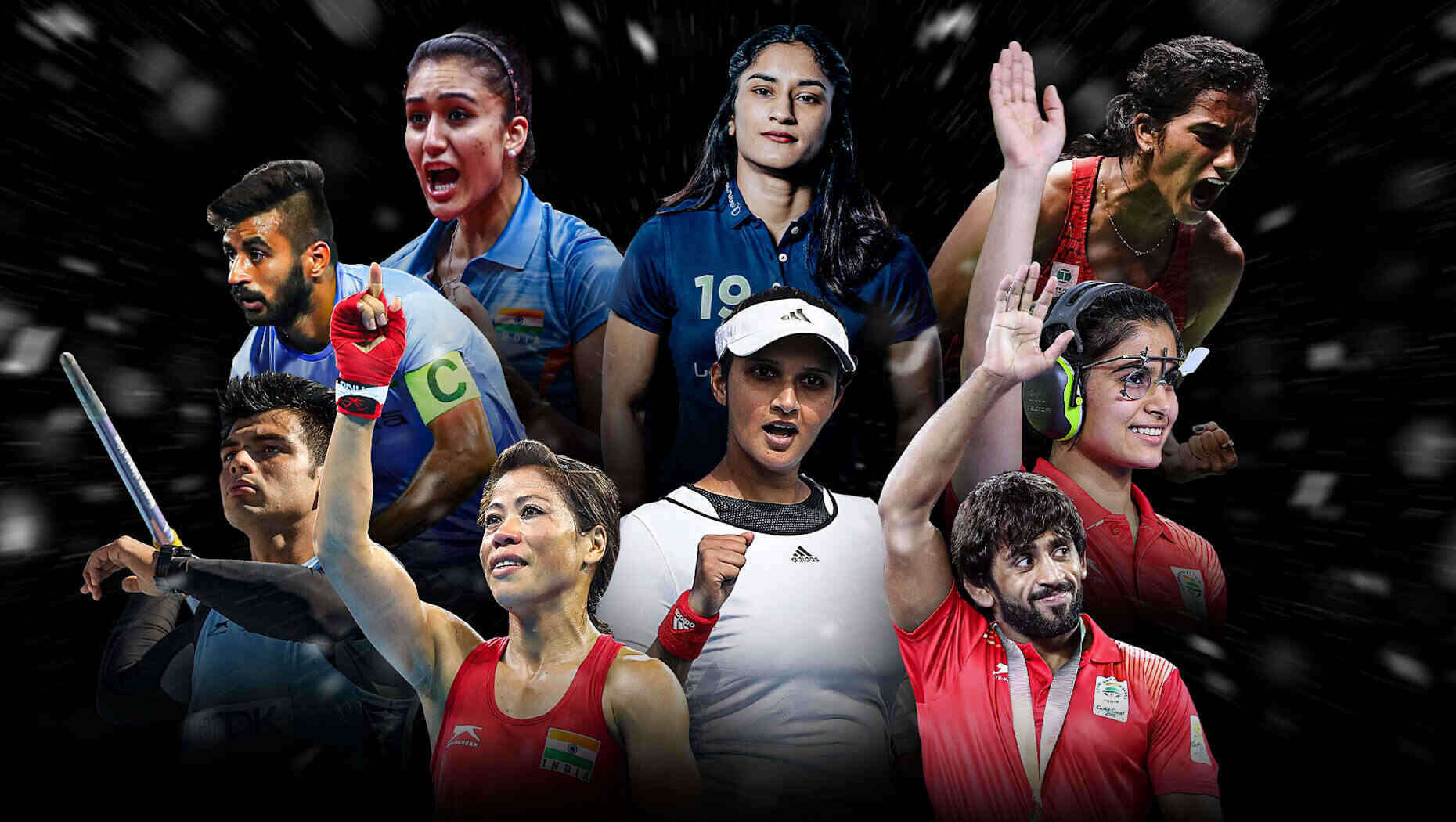India’s Olympic History: India At The Olympics

India’s journey at the Olympics is a tale of resilience, ambition, and sporting excellence. From its first participation in 1900 to its growing presence on the global stage, India’s Olympic story reflects the country’s evolution as a sporting powerhouse.
India’s Olympic Debut and Early Years
India’s first Olympic participation was in the 1900 Paris Games, with Norman Pritchard winning two silver medals in athletics. This marked the beginning of India’s journey at the Olympics, albeit with limited participation in the early decades. India’s participation was primarily in athletics, hockey, and wrestling.
Hockey Dominance: A Golden Era
India’s most glorious chapter at the Olympics is undoubtedly its hockey dominance. From 1928 to 1980, India won six gold medals, one silver, and one bronze in hockey. This period saw the rise of legendary players like Dhyan Chand, who is widely regarded as the greatest hockey player of all time. Dhyan Chand’s exceptional skills and leadership propelled India to unprecedented success in hockey, earning him the title of “The Wizard.”
Beyond Hockey: Expanding Horizons
While hockey remained a stronghold, India’s Olympic participation expanded to include other sports. Athletes like Milkha Singh, nicknamed “The Flying Sikh,” emerged in athletics, breaking records and inspiring generations. In the 1960 Rome Olympics, Milkha Singh narrowly missed a bronze medal in the 400m race, finishing fourth. This near-miss solidified his status as a sporting legend.
The Rise of Individual Athletes and New Sports
The latter half of the 20th century saw the emergence of individual athletes who made their mark in various sports. The likes of P.T. Usha, nicknamed “Payyoli Express,” in athletics, and K. D. Jadhav, a wrestler who won India’s first individual Olympic medal in 1952, paved the way for future generations. India’s participation in new sports like badminton, shooting, and boxing began to gain momentum.
Recent Performances and Future Prospects
In recent years, India has seen a surge in Olympic medal wins. The 2008 Beijing Olympics marked a turning point with Abhinav Bindra winning India’s first individual gold medal in shooting. This victory sparked a wave of optimism and inspired a new generation of athletes. The 2012 London Olympics saw India win its first Olympic medal in wrestling, with Sushil Kumar securing a silver medal. The 2020 Tokyo Olympics saw India achieve its best-ever performance, winning a total of seven medals. This included Neeraj Chopra’s historic gold medal in the javelin throw, making him the first Indian to win an Olympic gold in track and field.
Challenges and Opportunities
Despite recent successes, India faces challenges in achieving sustained Olympic success. These include limited infrastructure, inadequate funding, and a lack of a robust sports ecosystem. However, India has a vast pool of talent and a growing passion for sports. The government’s focus on developing sports infrastructure and providing better training facilities is a positive step towards nurturing future Olympic champions. With continued investment in sports development and a focus on building a strong sporting culture, India has the potential to become a major force at the Olympics.
India’s Strengths and Potential

India, with its vast population and burgeoning sporting culture, possesses a unique blend of tradition and modern aspirations. This dynamic combination fuels its potential to become a powerhouse on the global sporting stage.
Traditional Strengths
India’s sporting legacy is deeply rooted in traditional games, many of which have evolved into modern Olympic disciplines. These disciplines have historically been strong points for India, reflecting the country’s athletic prowess and cultural heritage.
- Field Hockey: India’s dominance in field hockey dates back to the early 20th century, earning the nation a reputation as a “hockey powerhouse.” The sport’s popularity, widespread accessibility, and strong grassroots development have contributed to its sustained success. India has won eight Olympic gold medals in field hockey, a testament to its historical excellence.
- Wrestling: India’s wrestling heritage is rich and diverse, with various forms of traditional wrestling practiced across the country. This strong foundation has translated into success in modern Olympic wrestling, with Indian wrestlers consistently performing well in both freestyle and Greco-Roman styles.
- Boxing: Boxing has gained immense popularity in India in recent years, attracting a large pool of talented athletes. The sport’s emphasis on physical strength, agility, and strategic thinking aligns with the Indian sporting spirit, contributing to its growing popularity and potential for future success.
Emerging Sports
Beyond traditional strengths, India is witnessing a surge in popularity and performance across a range of emerging sports, demonstrating the country’s evolving sporting landscape and its potential to excel in new disciplines.
- Badminton: Badminton has emerged as a significant force in India, with the country producing world-class players who have consistently challenged the global elite. The sport’s accessibility, fast-paced nature, and emphasis on agility and precision have contributed to its growing popularity.
- Shooting: India has established itself as a formidable force in shooting, with its athletes consistently performing well in various disciplines. The sport’s emphasis on precision, mental focus, and technical expertise aligns with the Indian sporting ethos, fostering a strong base for future success.
- Archery: Archery has witnessed a resurgence in India, with the country producing several world-class archers who have achieved international recognition. The sport’s focus on concentration, precision, and mental fortitude resonates with the Indian sporting spirit, paving the way for future success.
Factors Contributing to Growth, India at the olympics
India’s growing sporting prowess is driven by a confluence of factors, including improved infrastructure, coaching, and talent identification programs, all contributing to a more robust and sustainable sporting ecosystem.
- Improved Infrastructure: The government’s commitment to developing sports infrastructure has led to the construction of world-class training facilities, stadiums, and academies, providing athletes with access to state-of-the-art resources and training environments. This investment has significantly enhanced the quality of training and preparation, contributing to improved performance.
- Enhanced Coaching: India has witnessed a significant improvement in the quality of coaching, with the emergence of experienced and qualified coaches who have adopted modern training methodologies and techniques. This has led to a more systematic and structured approach to training, fostering the development of well-rounded athletes.
- Talent Identification Programs: The introduction of talent identification programs has been instrumental in unearthing promising young athletes from across the country. These programs use a combination of physical assessments, skill tests, and expert evaluations to identify potential Olympians at a young age, providing them with specialized training and support to help them reach their full potential.
Nurturing Young Talent
Creating a sustainable Olympic ecosystem in India requires a long-term strategy that focuses on nurturing young talent, providing them with the resources and support necessary to excel on the world stage.
- Grassroots Development: Investing in grassroots programs that promote sports participation at the school and community level is crucial for identifying and nurturing young talent. These programs should focus on providing access to basic training, equipment, and coaching, fostering a love for sports and encouraging a lifelong passion for physical activity.
- Specialized Training: Once young athletes show promise, they should be provided with specialized training programs that cater to their specific needs and aspirations. These programs should involve expert coaching, advanced training techniques, and access to state-of-the-art facilities, enabling athletes to hone their skills and reach their full potential.
- Mentorship and Support: Providing young athletes with mentorship and support is crucial for their growth and development. This could involve pairing them with experienced athletes, coaches, and sports professionals who can guide them through the challenges of a professional sporting career, providing valuable advice, encouragement, and guidance.
Impact of the Olympics on India

The Olympics have had a profound impact on India, transcending the realm of sports to influence the nation’s social fabric, economic landscape, and national identity. From inspiring generations of athletes to fostering a spirit of unity and sportsmanship, the Games have left an indelible mark on India’s journey.
Social Impact
The Olympics have played a pivotal role in promoting sportsmanship, discipline, and unity within India. The Games serve as a platform for athletes from diverse backgrounds to come together, fostering a sense of camaraderie and mutual respect. The spirit of competition and fair play instilled by the Olympics has permeated Indian society, inspiring a culture of discipline and hard work.
Economic Impact
The Olympics have a significant economic impact on India, boosting infrastructure development, tourism, and job creation. The Games have prompted investments in sports facilities, training centers, and related infrastructure, creating employment opportunities and stimulating economic growth. The increased visibility and exposure that India receives during the Olympics attracts foreign investment and tourism, further contributing to the nation’s economic progress.
Impact on Athletes and Communities
The Olympics have transformed the lives of Indian athletes and their communities. The Games provide a platform for athletes to showcase their talent and achieve international recognition, inspiring aspiring athletes and creating role models for young Indians. The success of Indian athletes at the Olympics brings pride and recognition to their communities, fostering a sense of accomplishment and inspiring a new generation of sports enthusiasts.
Inspiring Athletic Excellence
The Olympics have inspired generations of Indians to pursue athletic excellence. The achievements of legendary athletes like Milkha Singh, P.T. Usha, and Abhinav Bindra have captivated the nation, igniting a passion for sports and motivating young Indians to strive for greatness. The Games have also highlighted the importance of sports in promoting health, fitness, and overall well-being, encouraging a more active lifestyle among the Indian population.
India at the olympics – India’s Olympic journey has been marked by both triumphs and challenges, with athletes consistently pushing boundaries and inspiring generations. While the spotlight often shines on sporting achievements, it’s fascinating to note how personal lives, like the relationship of actor Hunter Schafer with her ex-boyfriend, which has been the subject of much speculation , can also generate public interest.
Ultimately, India’s Olympic performance remains a testament to the dedication and perseverance of its athletes, a source of national pride and inspiration for future generations.
India’s Olympic journey has been marked by moments of triumph and resilience. While athletes like Abhinav Bindra and Saina Nehwal have brought home individual glory, the nation’s collective spirit is reflected in its growing participation across diverse sports. This spirit of determination resonates with the global impact of figures like Rosalia Hunter Schafer , who challenge norms and inspire through their artistic expression.
Just as Schafer uses her platform to advocate for inclusivity, India’s Olympic athletes strive to represent their nation with integrity and inspire a new generation of sports enthusiasts.
